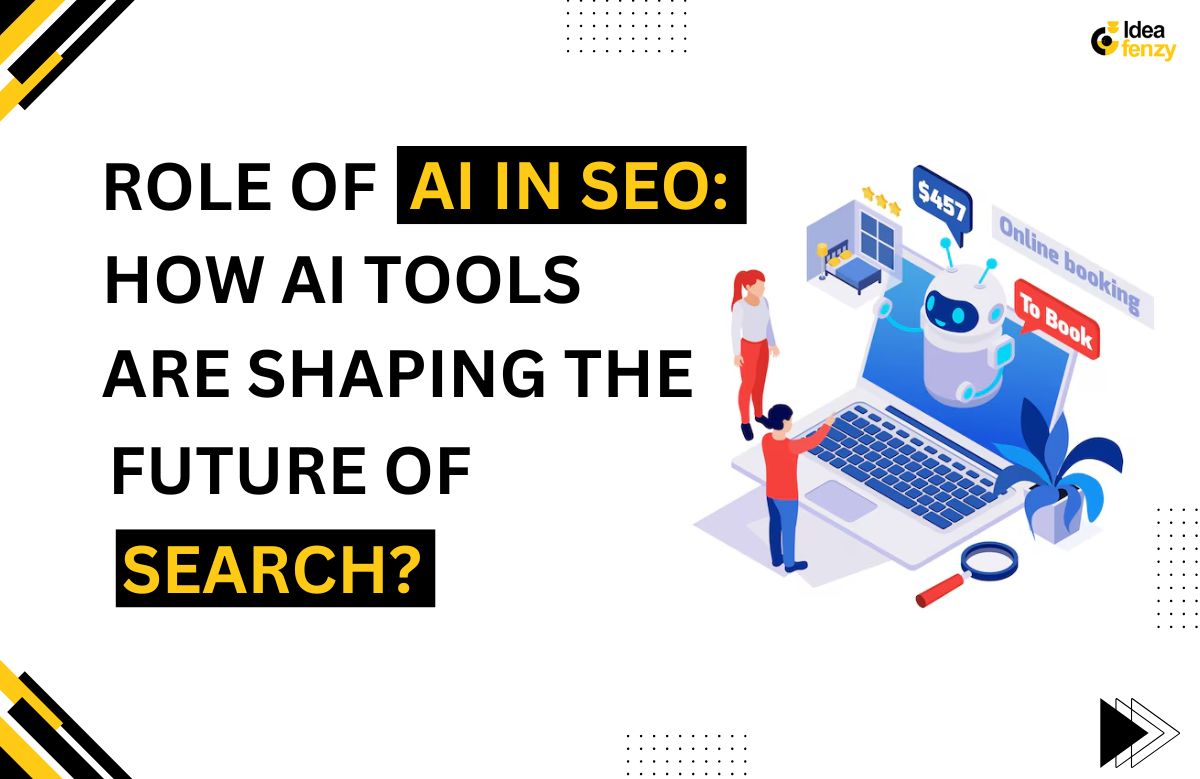As technology advances, the digital marketing landscape continues to evolve, and one of the most significant game-changers is the rise of Artificial Intelligence (AI) in SEO. Today, AI-powered SEO tools, automation, and advanced machine learning are not just influencing how businesses optimize their websites—they’re revolutionizing the entire SEO process. From keyword research to content optimization and even search engine algorithms, AI is making SEO more efficient, accurate, and predictive. Let’s dive into how AI is shaping the future of search and why it’s essential for businesses to embrace this transformation.
What is AI in SEO?
Artificial Intelligence has made its way into every industry, and SEO is no exception. AI in SEO refers to using AI-powered tools and machine learning algorithms to enhance various SEO activities such as keyword research, on-page optimization, competitor analysis, and content creation. By leveraging AI, digital marketers can make data-driven decisions faster and more accurately than ever before.
AI doesn’t just assist in analyzing massive amounts of data—it enables more intelligent predictions about search behavior, content trends, and even what Google’s search engine algorithms might prioritize next. The implementation of AI-powered SEO tools like ChatGPT and Bard is paving the way for more refined search strategies, taking guesswork out of the equation.
AI-Powered SEO Tools: The Game Changers
Gone are the days of manually tracking keywords and painstakingly monitoring changes in search engine rankings. With AI-powered SEO tools, marketers have access to automated solutions that can handle these tasks with greater speed and accuracy. Tools like SEMrush, Moz, and Ahrefs have incorporated AI to offer automated insights into keywords, backlinks, and even site audits.
ChatGPT and Bard, two revolutionary AI technologies, are also transforming the SEO landscape. ChatGPT for SEO, for example, can assist in drafting human-like content, answering queries, and optimizing content for better readability and engagement. Bard, on the other hand, offers enhanced search functionalities that predict user queries and preferences, making content even more relevant to search intent. These tools are constantly learning, meaning their recommendations improve over time.
Incorporating AI tools into your SEO strategy not only saves time but also provides deeper insights into how your content performs. AI can predict search trends based on historical data, offering a competitive advantage to businesses that use these tools effectively.
SEO Automation with AI: More Than Just Efficiency
AI is not just about generating insights—it’s also about automation. SEO automation with AI refers to automating repetitive SEO tasks, such as keyword monitoring, rank tracking, and technical SEO audits. By automating these processes, businesses can focus more on strategy and less on mundane tasks.
For example, AI tools can now automatically crawl websites, identify broken links, and recommend fixes. They can also track keyword performance in real-time, allowing businesses to adjust their content strategy as trends shift. AI can even automate competitor analysis by continuously monitoring rival websites and alerting you when changes are made, helping you stay ahead in the SEO game.
Moreover, AI’s ability to personalize user experiences through data-driven insights means businesses can offer more tailored content to their audience, driving better engagement and higher rankings. This level of personalization is crucial for modern SEO strategies, particularly in a world where search algorithms are increasingly focused on user experience.
AI and Search Engine Algorithms: A New Era of Optimization
Google and other search engines are continuously updating their algorithms, often with little warning. The rise of AI and search engine algorithms is transforming how search engines process information and rank websites. Google’s AI algorithm, RankBrain, for instance, uses machine learning to understand the context of search queries and deliver more relevant results to users.
As search engines get smarter, the traditional methods of keyword stuffing and backlinks are becoming less important. Instead, search engines are now focusing on factors like content quality, user intent, and engagement metrics. AI-powered tools can help businesses optimize for these factors by analyzing user behavior, identifying content gaps, and offering recommendations for improvement.
The future of SEO with AI lies in understanding how search engines are evolving and adapting accordingly. By focusing on user intent and leveraging AI to fine-tune your content, businesses can stay ahead of the curve and ensure their websites remain visible and relevant in search engine results.
AI Content Optimization: Better Content, Better Rankings
One of the most exciting developments in AI is its ability to optimize content. AI content optimization tools analyze your existing content and provide actionable recommendations for improving readability, engagement, and SEO performance. These tools can suggest changes to sentence structure, keyword placement, and even content length based on what works best for your target audience.
By integrating AI into your content creation process, you can ensure that every piece of content you produce is optimized for search engines and users alike. AI can also help identify content gaps, allowing businesses to create new, relevant content that answers user queries and ranks higher in search engine results.
The Future of SEO with AI: Where Are We Heading?
The future of SEO is undeniably intertwined with AI. As AI technology continues to advance, we can expect even more sophisticated tools and strategies that make SEO more efficient and effective. The integration of AI into search engines, user behavior analysis, and content optimization will continue to shape the SEO landscape.
Businesses that embrace AI now will be better positioned to capitalize on these changes, ensuring they remain competitive in an ever-evolving digital world. At Ideafenzy, we stay ahead of the curve by incorporating cutting-edge AI strategies into our SEO services to deliver results for our clients. To learn more about how SEO drives lead generation for B2B businesses, check out our comprehensive blog here.
In conclusion, AI is not just a tool for enhancing SEO; it’s becoming the backbone of the entire process. From automation to algorithm analysis and content optimization, AI is shaping the future of search. Businesses that leverage AI will not only save time and resources but also stay competitive in a rapidly changing SEO environment. So, are you ready to embrace the AI revolution in SEO?

